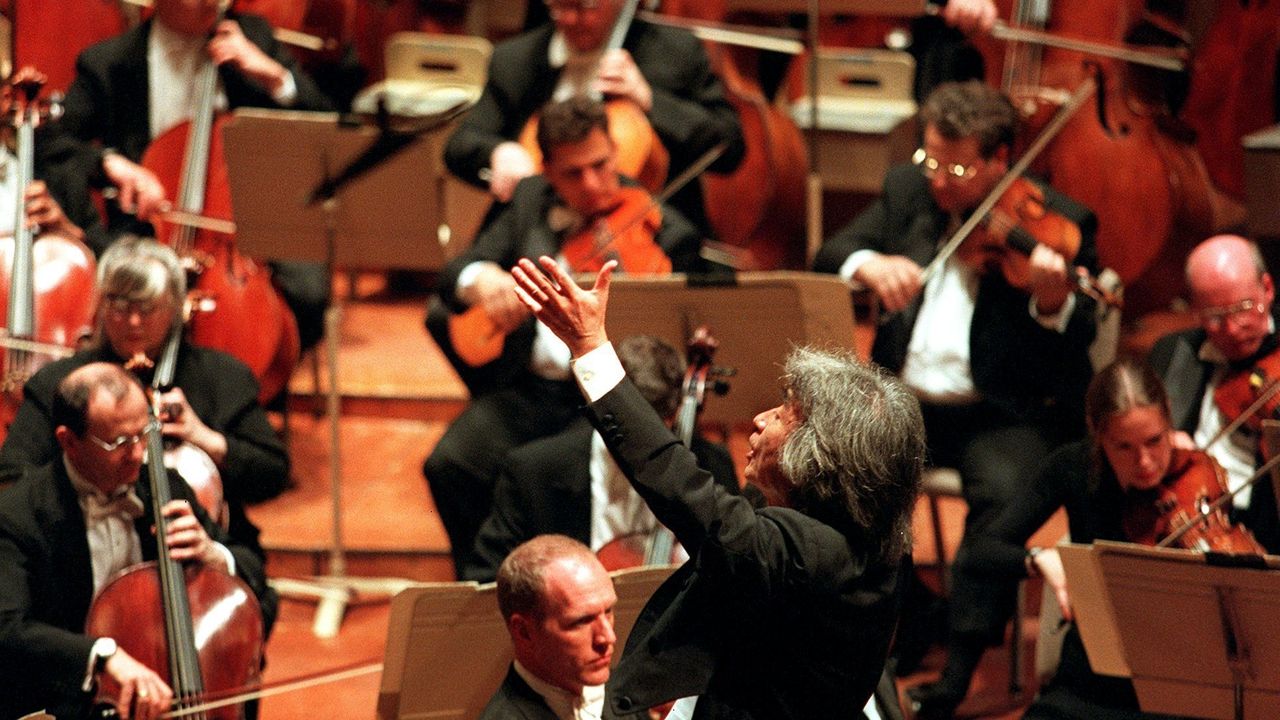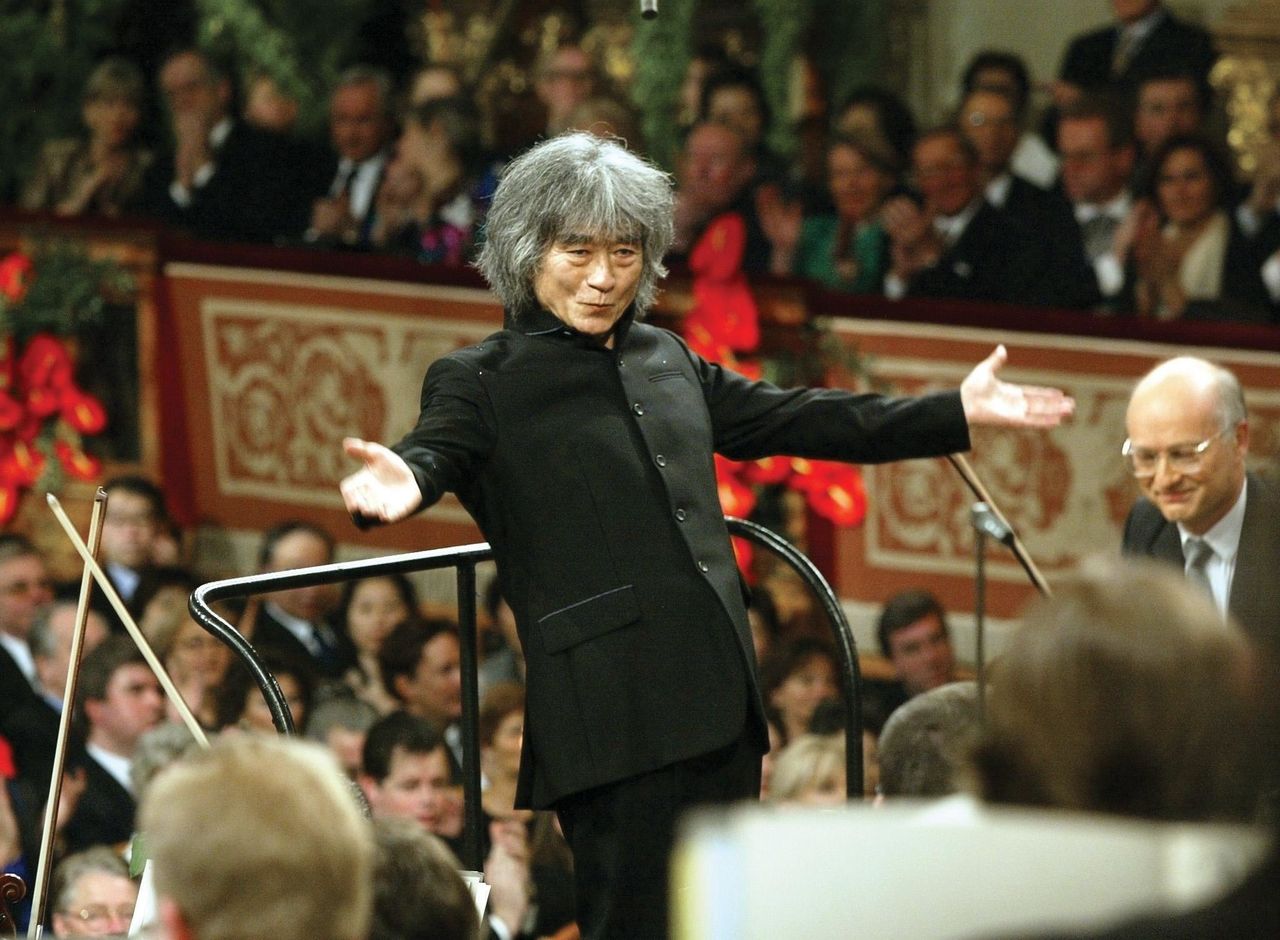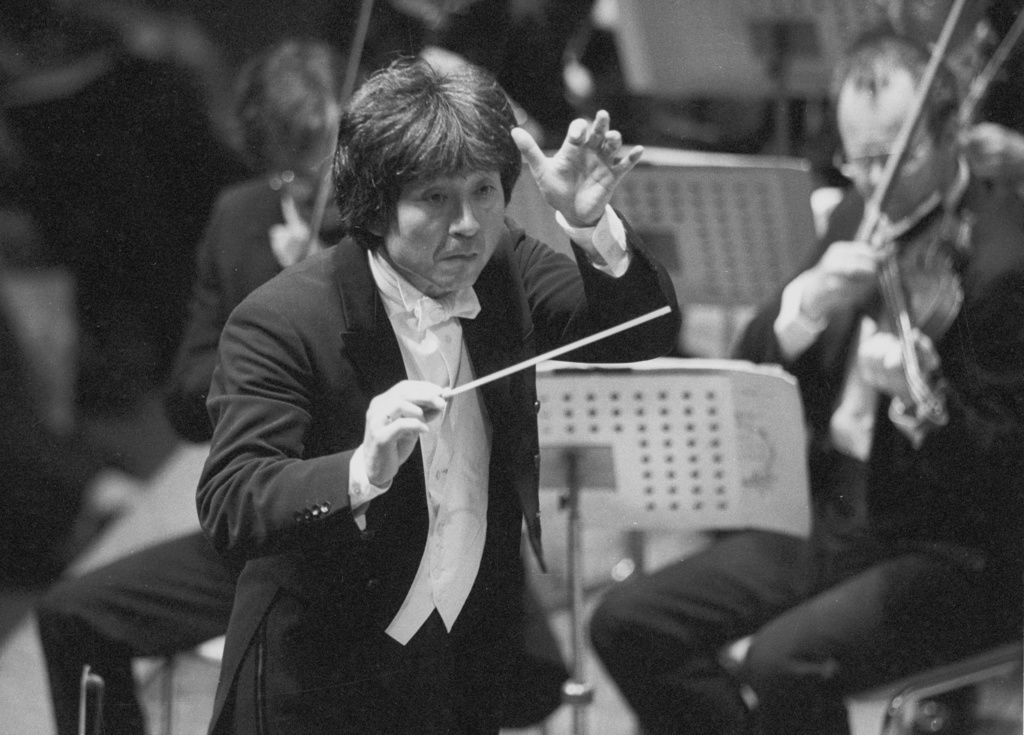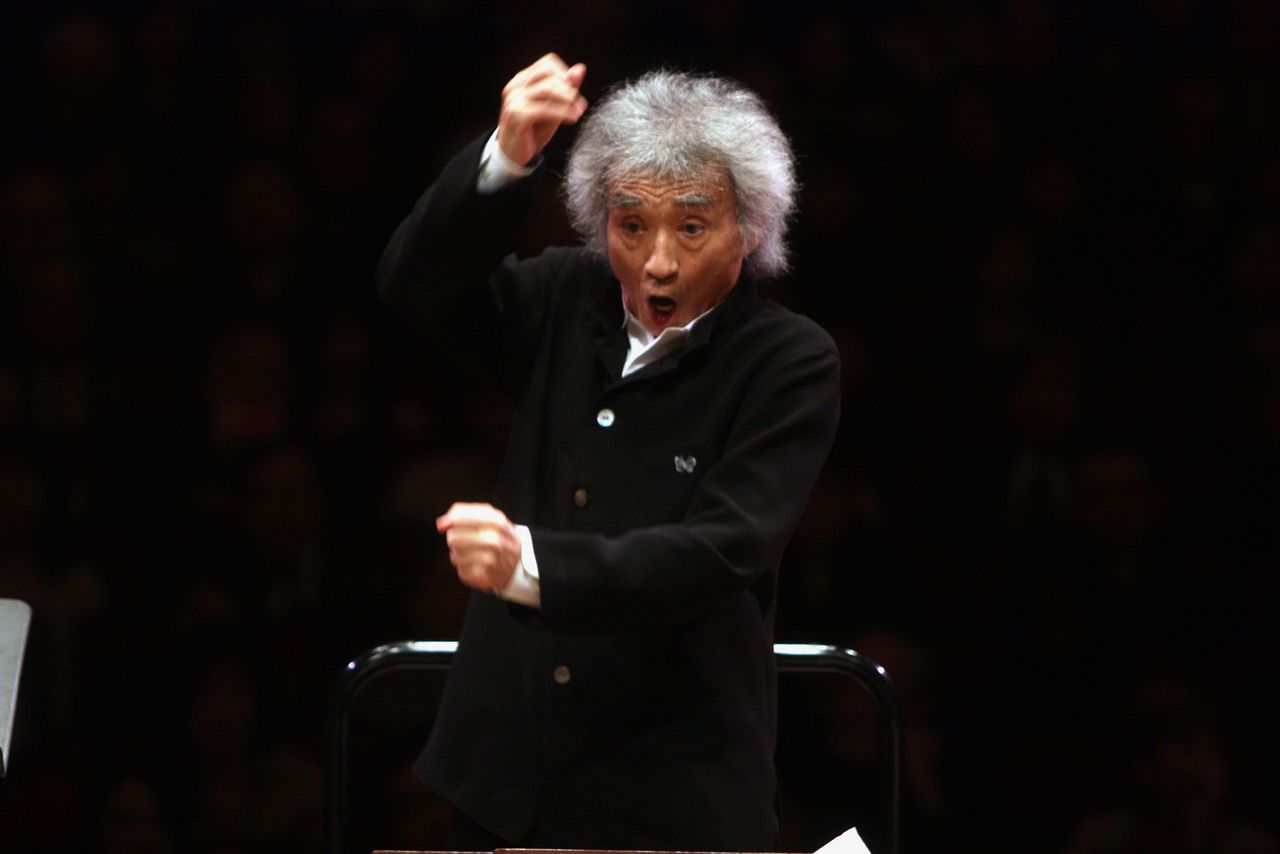
Ad Memoriam: Ozawa Seiji, World-Renowned Orchestra Conductor and Exceptional Musical Talent
Culture Society Art- English
- 日本語
- 简体字
- 繁體字
- Français
- Español
- العربية
- Русский
A Superlative Musical Career
Conductor Ozawa Seiji passed away on February 6, 2024, aged 88.
In his thirties, he was appointed music director of the Toronto Symphony Orchestra and the San Francisco Symphony Orchestra. At the age of 38, he began his tenure at the Boston Symphony Orchestra, one of the “big five” orchestras in the United States; he would helm the group for some three decades. At the same time, he was among only a handful of conductors to lead regular performances of the Berlin Philharmonic and the Vienna Philharmonic.

Ozawa rehearsing for a performance in Paris, November 9, 1981. (© Marc Bulka/Gamma-Rapho via Getty Images)
He was also a presence in the world’s leading opera houses, conducting at both Milan’s La Scala and the Salzburg Festival. In 2002, he became music director at the Vienna State Opera, a position he held until 2010. Also in 2002, he conducted the Vienna Philharmonic’s New Year Concert, becoming the first Japanese conductor to do so. His performance at this traditional New Year event beloved by classical music fans around the world was recorded live, and CDs of the performance notched record-breaking sales in the classical music genre.

Ozawa conducting the Vienna Philharmonic for the New Year concert at Vienna’s Musikverein on January 1, 2002. (© AFP-Jiji)
Unparalleled Achievements
Ozawa was a rare talent who succeeded at the stratospheric heights of Western classical music. He was loved and respected not as a Japanese, a person from a different culture excelling in the genre, but as a first-class musician on a par with Westerners. So far, only Ozawa has succeeded in establishing such a presence in the world of classical music, with very few other Japanese conductors even coming close to approaching his stature.
In Japan, he played a major role in founding and nurturing the New Japan Philharmonic, and had a hand in creating the Saitō Kinen Orchestra in 1987. In 1992, he founded the Saitō Kinen Festival in Matsumoto, Nagano Prefecture, renamed the Seiji Ozawa Matsumoto Festival in 2014, where he was the general director. The orchestra and its yearly summer music festival became a respected presence in the world of classical music.
He was also the long-time conductor of the Mito Chamber Orchestra attached to Art Tower Mito, which opened in 1990 in Mito, Ibaraki Prefecture. In 2013, he became head of Art Tower Mito and gave concerts to familiarize the city’s children with and help them appreciate live music. He was also an educator, founding the Seiji Ozawa Music Academy Opera Project in 2000 to nurture young musicians.

Ozawa (center), founder of the Seiji Ozawa International Academy Switzerland, after conducting a concert at Victoria Hall in Geneva with young musicians from the Academy on June 28, 2014. (© Jiji)
Ozawa was a major presence not just in the musical world abroad; he also made innumerable contributions to classical music in Japan.
Warm, Loving, a Cherisher of Friends
Ozawa did not start out as part of a musical elite. He enjoyed a successful career thanks to hard work, dynamism, and that quality essential to orchestra conductors, personal appeal. Throughout his life, he never stinted on study, and the story of how he traveled to France abroad a freighter along with his scooter is a well-known example of his decisive nature. Everyone close to Ozawa whom I interviewed while writing Yamamoto Naozumi to Ozawa Seiji (Yamamoto Naozumi and Ozawa Seiji) touched, without fail, on his warm, loving nature and outgoing character.
When conductor, composer, and friend Yamamoto Naozumi (1932–2002), passed away, I heard from Yamamoto’s son Junnosuke that Ozawa was the first among music notables to rush to pay his respects. Although Junnosuke was not in direct contact with Ozawa, this is yet another moving example of Ozawa’s devotion to his friends.
Ozawa’s hard work and winning personality made him a great favorite of many but in particular of his mentor, the music educator and cellist Saitō Hideo (1902–74). (Ozawa, in turn, helped raise Saitō’s profile in the musical community.) Those qualities also helped bring Ozawa under the tutelage of the two greatest conductors of the latter half of the twentieth century, the Berlin Philharmonic’s Herbert von Karajan and Leonard Bernstein, of the New York Philharmonic Orchestra.
A Presence Creates an Aura
Over the years, I attended many concerts with Ozawa conducting. I was deeply impressed by his impeccable baton technique and his clear approach to the music; his vibrant presence on the podium is seared into my brain. One unforgettable performance was Ozawa conducting Mahler’s Symphony No. 3 with the Boston Symphony Orchestra at the Tokyo Bunka Kaikan on February 13, 1986. I was entranced by the music, from start to finish, and the finale, with the music flowing like a majestic river, stimulated deep emotions in my heart. It was the best concert of my life.

Ozawa (center), founder of the Seiji Ozawa International Academy Switzerland, after conducting a concert at Victoria Hall in Geneva with young musicians from the Academy on June 28, 2014. (© Jiji)
I recall another memorable performance, in November 2018; by then, Ozawa had virtually stopped appearing in public. The occasion was a concert at Tokyo’s Suntory Hall commemorating the 120th anniversary of the German classical music label Deutsche Grammophon by the Saitō Kinen Orchestra. Ozawa took over from a different conductor to conduct Saint-Saëns’ Introduction to the Rondo Capriccioso in A minor, with the violinist Anne-Sophie Mutter playing a solo. At that moment, the orchestra’s sound clearly changed, the music becoming crisp and full of life. I expect one had to be there in person to feel the change, but I am sure everyone in the audience felt the way I did. That was my last opportunity to hear Ozawa and experience his greatness as a conductor and musician.
Ozawa, who was not in the best of health in his last years, had scaled back his activities considerably. But violinist Toyoshima Yasushi, who acted as concertmaster for the Saitō Kinen Orchestra and the New Japan Philharmonic, whom I interviewed, related the following.
“Ozawa was in the wings when Charles Dutoit conducted the Saitō Kinen Orchestra in 2021. Ozawa simply moved his arm slightly, and the music suddenly took on a different tonality. That was the power that Ozawa held. His mere presence could make an orchestra sound different.”
Even though he was no longer at center stage, Ozawa’s charisma had the power to change an orchestra’s sound. He was an indispensable presence, and for that reason, his loss is all the more keenly felt.

Ozawa conducting the Saitō Kinen Orchestra in New York, December 18, 2010. (© Itō Hiroyuki/Getty Images)
(Originally written in Japanese. Banner photo: Ozawa conducting the Boston Symphony Orchestra at Boston Symphony Hall, September 2000. © Dominic Chavez/The Boston Globe via Getty Images.)
